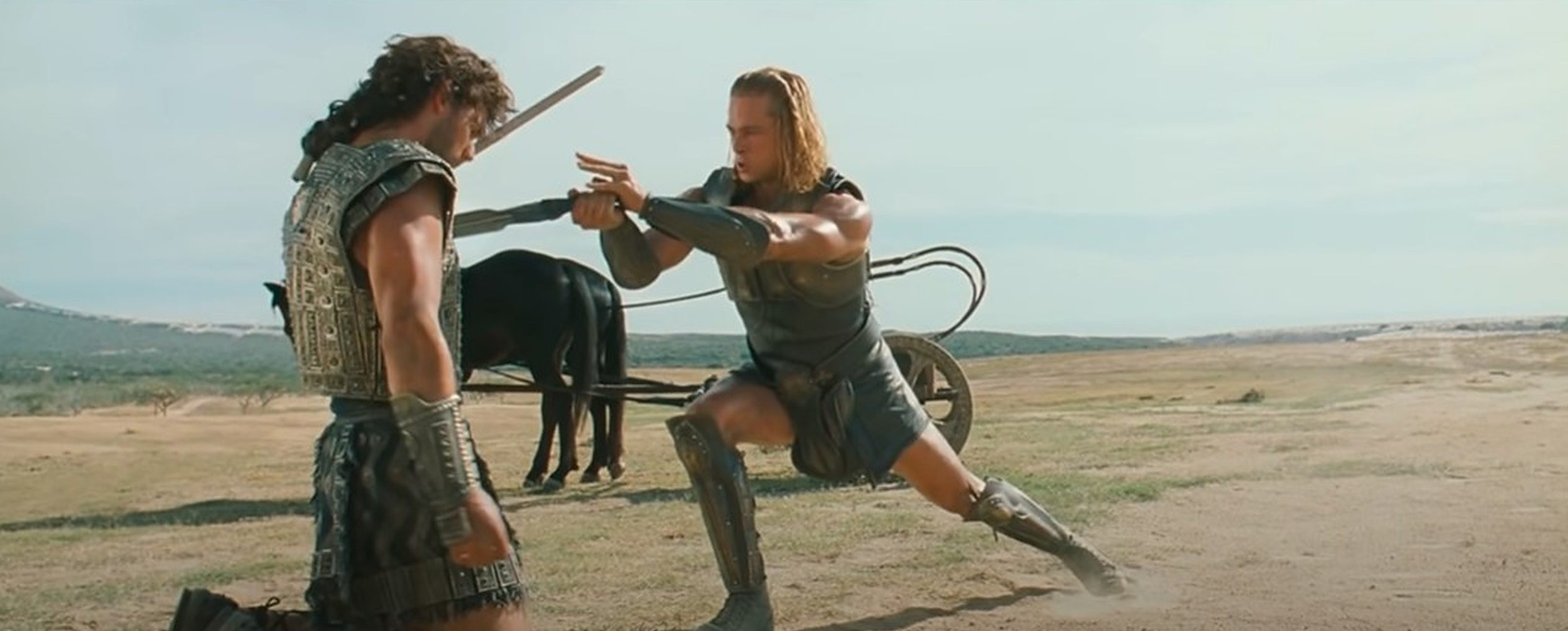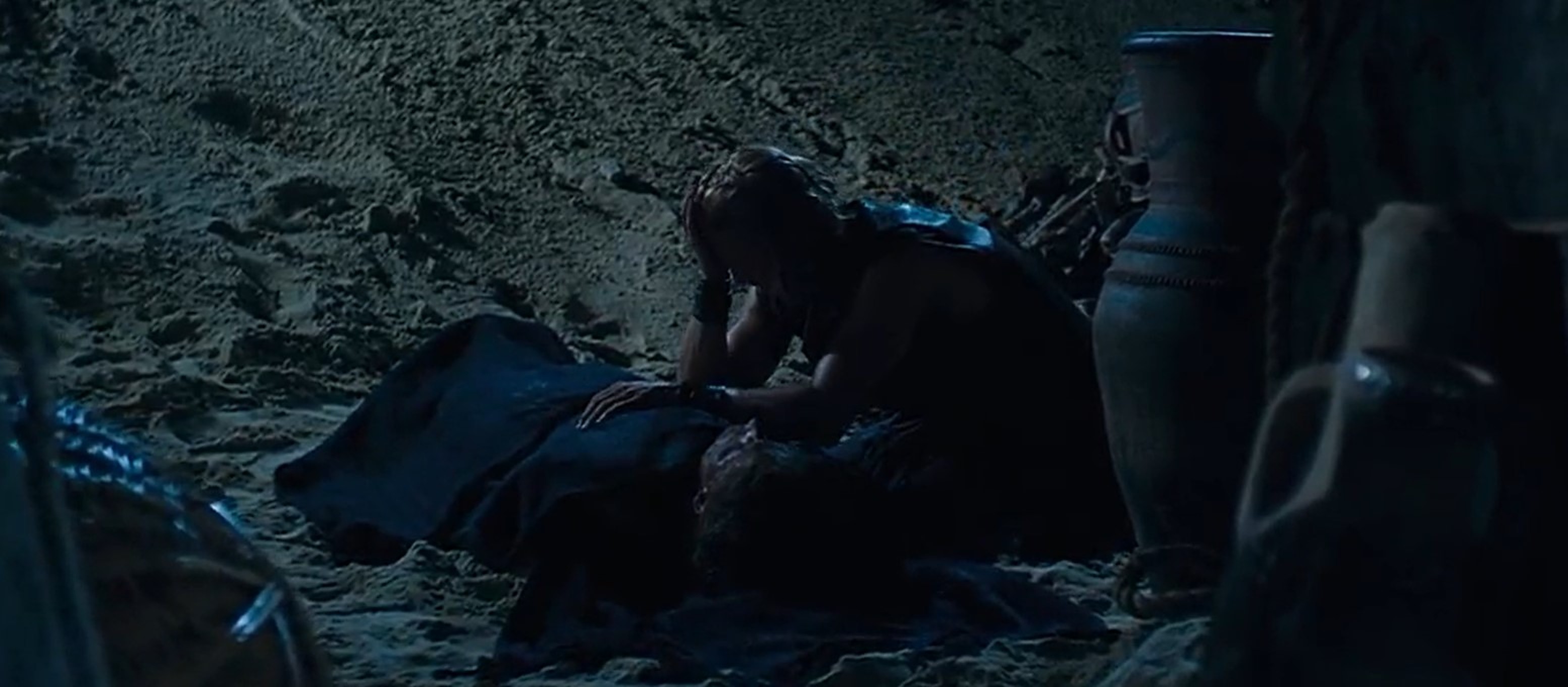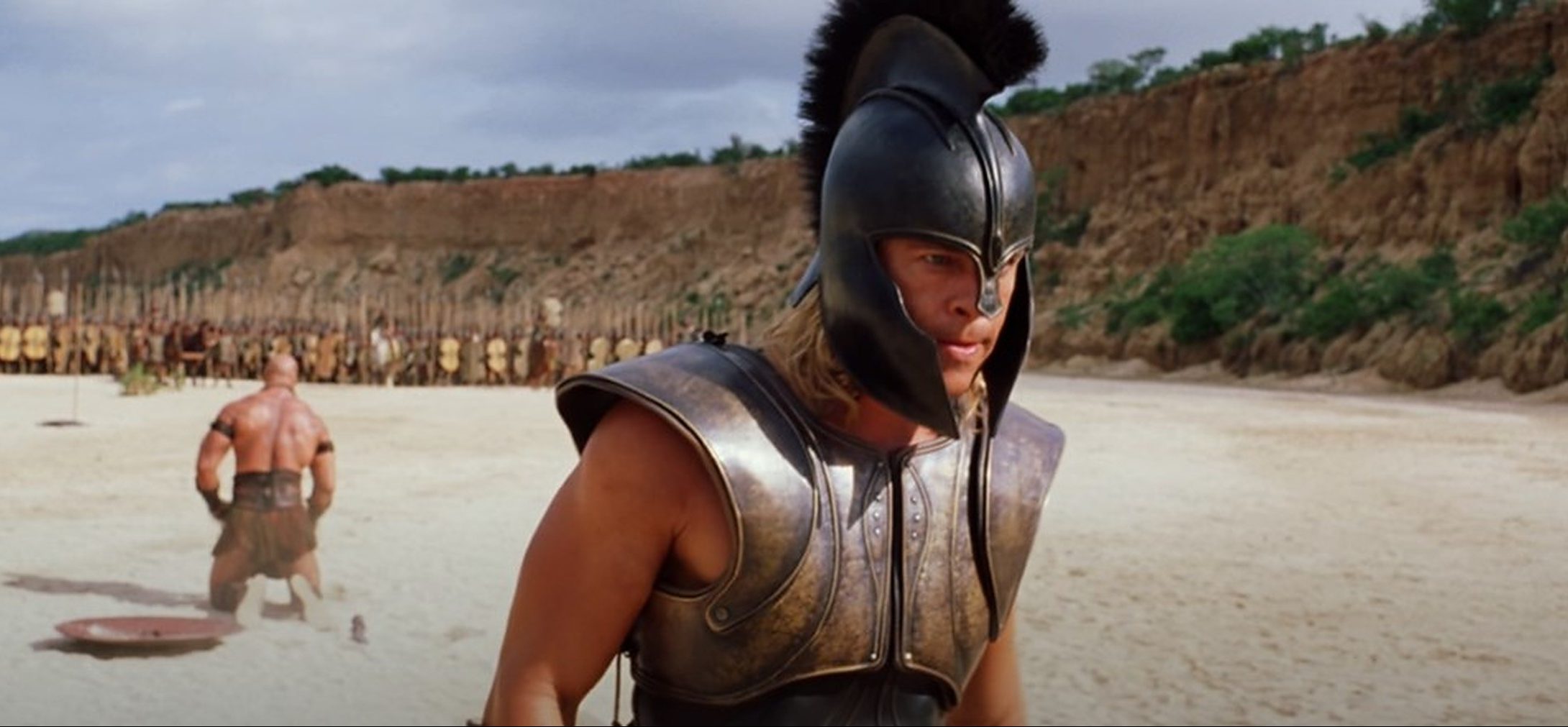‘Troy‘ is an impactful historical drama movie loosely based on Greek author Homer’s epic poem ‘Iliad.’ Directed by Wolfgang Petersen, it chronicles the love story between the Trojan prince Paris and Helen, the beautiful wife of King Menelaus of Sparta. When they elope, the latter’s brother King Agamemnon assembles the Greeks and declares war on Troy, vowing to bring back Helen.
As the Greek forces inch toward victory, matters get complicated when their best warrior Achilles (Brad Pitt) falls for a Trojan priestess. Moreover, the audience gets surprised when he lets down his guard and sheds tears after killing Prince Hector of Troy (Eric Bana). Now, if like us, you too wonder why he shows such strong emotion, how about we find out together? Let’s begin. SPOILERS AHEAD.
Why Does Achilles Cry after Killing Hector?
In ‘Troy,’ though the undefeatable Greek warrior Achilles remains loyal to King Agamemnon of Mycenae, deep down he resents the ruler for his treacherous ways. Thus, he is hesitant to accompany him on his conquest of Troy but relents upon being persuaded by his mother and Odysseus. But when Agamemnon forcefully takes away Briseis, the Trojan priestess whom he captured, Achilles decides to step back from the war. Unfortunately, he is dragged back, when Prince Hector of Troy mistakes his cousin and aide Patroclus for him and kills him in a duel.

Enraged at his cousin’s death and bound by duty, Achilles challenges Hector to a duel outside Troy’s gates and kills him, after which he drags his body back to his camp. Later, the latter’s father King Priam secretly approaches the Greek warrior and requests him for his son’s body. While returning Hector’s corpse, Achilles breaks down and cries, deeply remorseful at what he has done. This is mainly due to two reasons- firstly, he is mourning the death of his beloved cousin Patroclus and secondly, he regrets killing Hector and the disrespectful manner in which he treated his corpse.
Since Achilles’ duty toward his slain protégé compels him to commit the act, he feels pained to see Hector’s dead body and realizes the devastation that he has caused. Moreover, when King Priam begs him for his son’s body, he emotionally acknowledges that he knew his father and that he was a lucky man to die seeing his son live on. The Trojan ruler bemoans losing his young son in front of his eyes and pleads with his murderer to at least let him hold a funeral. His enemy gets deeply affected by his words, and the futility of the war dawns upon him.

Furthermore, Achilles comprehends that while the latter made an honest mistake by confusing Patroclus for him, his own deeds were fueled by pure rage and animosity. Not just that, seeing such a great warrior as Hector lying lifeless at his feet, Achilles ponders the fragility of life and how it means nothing to those on the battlefield. Realizing that he too may die similarly, and saluting his opponent’s bravery, he tearfully calls Hector his brother and states that he will see him soon, before sending him back with King Priam.
Achilles is merely fulfilling his obligation toward his King by killing Hector, but he understands that the latter too, did the same by killing Patroclus. Therefore, his tears are not just for himself, but for all other men like him, who are bound by duty to commit bloodshed in battle. Homer’s ‘Iliad’ beautifully explores this duality of war, wherein the downside to the glory a warrior achieves is the grief and guilt of killing hundreds of innocent men.
Even though in the poem King Priam mourns his son, while Achilles mourns his cousin as well as the doomed fate that awaits him, both men weep together echoing the same sentiment- the harsh realities of war and how it continuously corrodes mankind. Thus, despite the causes of the Greek hero’s tears being different on-screen in ‘Troy,’ the overall remorse is similar and shows how greatness lies in accepting one’s vulnerabilities and respecting the opponent.
Read More: Is Troy a Real City? Did the Trojan War Really Take Place?


You must be logged in to post a comment.